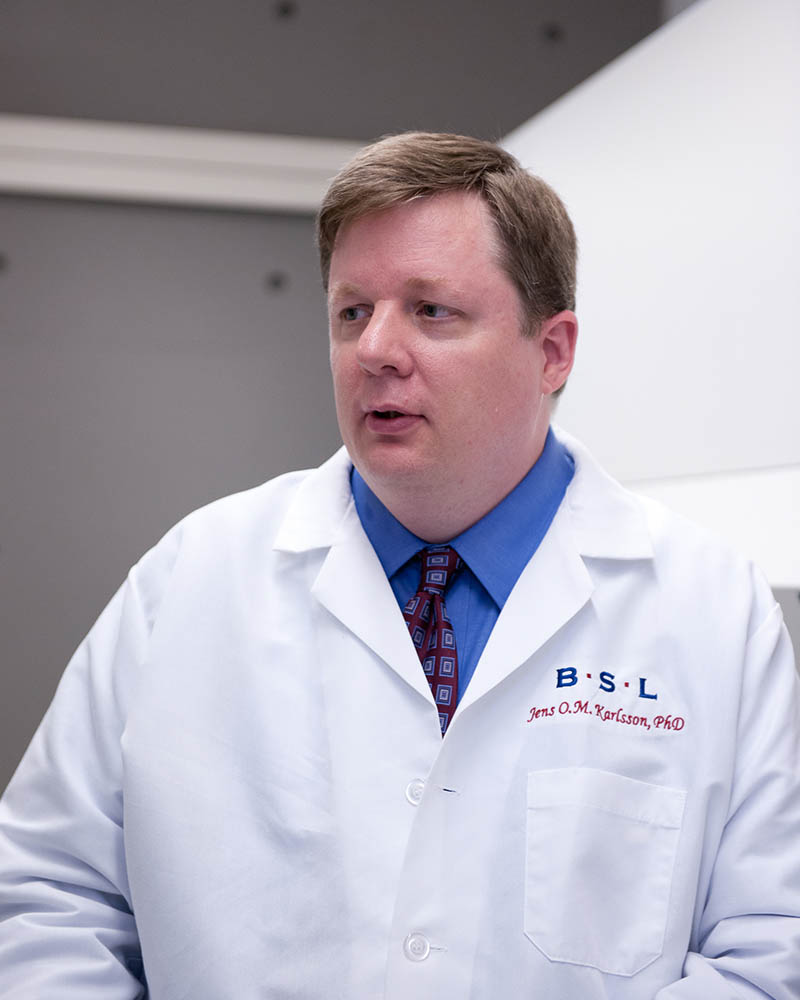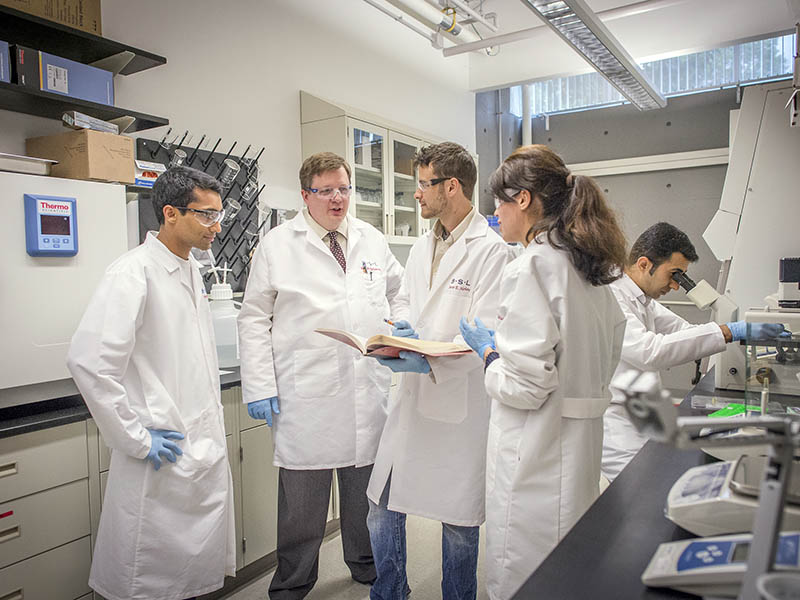Dr. Jens Karlsson Tapped to Lead Industry-Sponsored Research Project on Cryopreservation of Cancer-Fighting Immune Cells

GlaxoSmithKline (GSK) has entered into research contract with Villanova for $97,000 for work that will be supported by Dr. Jens Karlsson, associate professor of Mechanical Engineering and director of Villanova University's Biothermal Sciences Laboratory, to improve the cryopreservation process for a new cancer-targeting cell therapy product. Beginning in November 2019, Dr. Karlsson will lead a two-year research effort to systematically evaluate the effects of cryoformulations and freezing rates on cryopreservation of T cells, immune cells that can be engineered to treat cancer. The work will focus on assessment and prevention of intracellular ice formation during cryopreservation, and will use Villanova’s unique high-speed imaging cryomicroscopy facility to detect the ultra-rapid intracellular freezing events.

Dr. Karlsson explains, “When cryopreservation processes have not been optimally designed, the formation of ice crystals inside cells can be a major cause of cell damage during freezing and thawing.” Thus, Dr. Karlsson and his research team will investigate how key process parameters influence the risk of intracellular ice formation during cryopreservation of human T cells. “By determining the conditions that reduce the probability of intracellular freezing, we can provide guidance on how to improve product quality by selecting optimal cryopreservation medium formulations and temperature profiles,” says Dr. Karlsson.
In recent years, there has been an explosion of interest in T cell therapy and its potential for treating cancers with greater specificity and fewer side-effects than conventional chemotherapy. While T cell therapy shows tremendous promise, as with any new form of medical treatment, there are obstacles to overcome. One of those challenges is the optimization of cryopreservation techniques to allow the live cells to be cryogenically stored and shipped during manufacturing and product distribution, with minimal impact on product efficacy.
The GSK research contract is the most recent among a number of grants received by faculty researchers in NovaCell, Villanova’s Center for Cellular Engineering. Established in 2018, NovaCell is committed to improving cell and gene therapy products and the bioprocesses used to make them. Other active projects in the Center include the improvement of microbioreactors for T cell expansion, development of a transcriptome-based model for optimization of T cell growth rates, and manipulation of human cells’ innate immune response to improve gene therapy. GSK has an active program in the Cell and Gene Therapy area as well as a manufacturing site in nearby Upper Merion and Upper Providence, PA.
